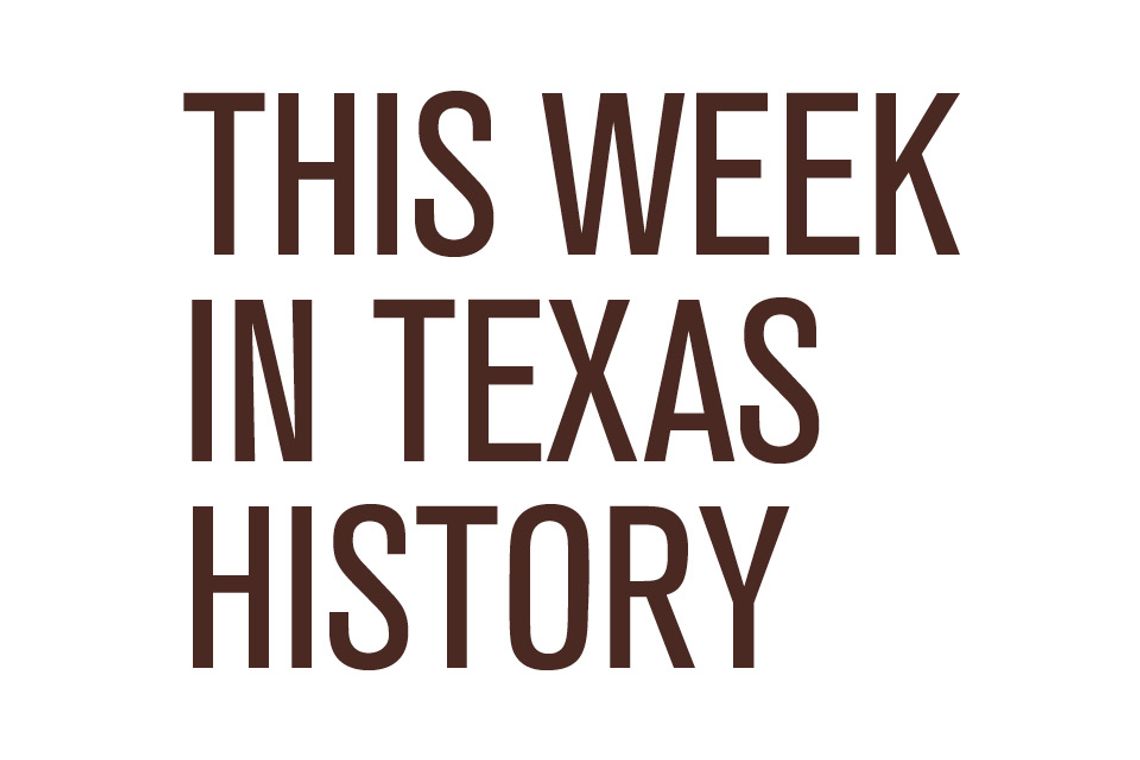As part of the popular “Open Forum” in Houston, Margaret Sanger spoke on “The Need For Birth Control In America” to an audience of 2,500 in the city auditorium on Nov. 7, 1931.
While six different Texas cities held regular public lectures by well-known guest speakers in the early twentieth century, the “Open Forum” programs with the most staying power were in Dallas and Houston. And in both cases single individuals determined to broaden the intellectual and cultural horizons of their communities were responsible for the creation and survival of the civic institutions.
In Big D that person was Elmer Scott. The Ohio native was fresh out of college in 1889, when a fraternity brother hired him as an assistant for the new office his company was opening in Dallas. The midwesterner liked the people and the city, which had a population of 65,000 at the time, and made a promise to himself that some day he would return.
In 1895 Scott moved to Chicago, where he got in on the ground floor of a newborn business that called itself Sears, Roebuck and Company. The young visionary was as sharp as a tack and peppered his bosses with fresh ideas, such as expanding beyond the Windy City.
When Dallas came up on the list of target cities in 1906, Scott asked for the opportunity to manage the new department store. The home office hated to lose him but could not reject his request if they hoped to keep him in the corporate fold. Dallas did not look anything like the city Scott had left 11 years earlier. The influx of new inhabitants attracted by the booming economy had doubled the population to 135,000.
Striking as the meteoric growth was, Scott could not help but be troubled by the pervasive poverty and the blind eye better-off citizens turned toward the needs of the poor. His increasing concern for their plight caused him to leave Sears in 1915 and accept the challenge of organizing a department of public welfare.
In his first two years at the helm, like-minded Dallasites were so impressed by Scott’s commitment and accomplishments that they prevailed upon him to take the lead in the founding of the Civic Federation. Out of this organization with a social conscience came the first “Open Forum” in the South that brought more than 300 speakers to town between 1919 and 1937.
The Bayou City’s original librarian watched the progress of Dallas’ “Open Forum” with great interest. It sounded exactly like something she would like to do at the earliest opportunity.
Julia Ideson was neither shy nor lacking in initiative. The day after graduating from the University of Texas with a degree in library science, the 21-year-old woman applied for the position of librarian in Houston. She was hired months before the city’s first library opened its doors in March 1904.
“These (early) days were hectic,” Ideson wrote years later. “There was only one person to assist me, and an errand boy and janitor completed the staff.” But she persevered overcoming any and all obstacles to her goal of making books available to every Houstonian, including blacks previously barred from setting foot in the public library.
After a professor at Rice Institute started a tentative version of the Dallas “Open Forum” in 1926, Ideson invited him to move the lectures to the recently completed downtown library. When even those roomier accommodations proved inadequate, it was Ideson who talked local officials into opening the city auditorium to the meetings.
Depending upon the topic and speaker, attendance ranged from a few hundred to capacity crowds of five or six thousand. When women’s rights advocate Margaret Sanger was finally allowed to share her views seven years after pressure from the Catholic Church and other critics forced her to cancel, 2,500 Houstonians came to listen.
Controversy was part and parcel of the “Open Forum.” Atheist attorney Clarence Darrow, British socialist Bertrand Russell and muckraking journalist Lincoln Steffens were three of the many personalities whose appearances sparked strong and occasionally hysterical reactions from groups like the Women’s Christian Temperance Union, the Crime Suppression League and the Loyalty To The Law League as well as a long list of preachers and the Ku Klux Klan in its heyday.
More often than not, loud protests from the guardians of public morality guaranteed a good turnout. A little known judge from Denver, who had ruffled a few feathers with his opinions on marriage and birth control, ended up addressing a full house with another 4,000 turned away at the door by the fire marshal.
However, halfway through Depression decade, more and more Texans preferred an evening of escape at the movies to spending a couple of hours in a lecture hall. The last “Open Forum” was held in Houston in 1938 a year after Dallas discontinued its program.
Bartee’s four books “Texas Depression-Era Desperadoes,” “Murder Most Texan,” “Texas Boomtowns: A History of Blood and Oil” and “Unforgettable Texans” are available at barteehaile.com or by mail at P.O. Box 130011, Spring, TX 77393.











